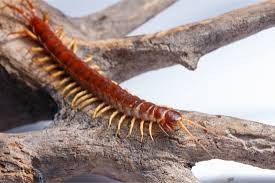As absurd as it may be, the thought of getting a pet that can eat bed bugs pops up sometimes. If you have a bed bug problem, you will think of many ways to fight them. The one question that always follows that thought is whether any predators eat bed bugs.
Many predators eat bed bugs, but the critical question is whether you want them in your home. This post outlines the common bed bug predators and tells whether they are safe to keep at home.
Table of Contents
Cockroach
Cockroaches are prevalent pests in low, middle, and high-class homes. You have likely seen one on the internet or in movies if you haven’t encountered one in your home. The fact that a cockroach eats dead cockroaches if given the opportunity illustrates the broadness of its diet. While they prefer to eat something sweet or starchy, they will happily eat anything on their path.
If you are still wondering, cockroaches eat bed bugs if they get an opportunity. Cockroaches find it challenging to crawl into tight spaces to eat bed bugs even though they have greater access than other predators. It is easy for cockroaches to bump into bed bugs because they often feed at night, just like bed bugs. Nonetheless, opportunities to feed on bed bugs are scarce because they are good at hiding in tiny folds, cracks, and crevices.
Several species of cockroaches eat bed bugs, but not all of them do. The main species of cockroaches that feed on bed bugs include the following:
- The Oriental cockroach
- The American cockroach
- The German cockroach
- The brown-banded cockroach
Considering using them, you should know that cockroaches are ineffective enough against bed bugs. It is also not advisable to introduce cockroaches into your home because they can harm you by:
- Contaminating your food
- Biting you
- Making your home unhygienic thereby, scaring away visitors
Masked Hunter
The masked hunter is unpopular compared to most common pests like cockroaches, ants, and mites. Considering that one of the masked bed bugs’ nicknames is bed bug hunters, it is clear that they eat bed bugs. Their size ranges between 17 to 22 millimeters, dark brown or black, and they can fly.
Masked hunters live in warm and dry regions, particularly in the USA’s central and eastern areas. As predators, these insects hunt several bugs, but bed bugs are their favorite meal.
In theory, masked hunters seem like the perfect natural solution to your bed bug problem, but they are not. It will not be wise to bring them into your home because of the following reasons:
- Some sub-species of masked hunters can transmit diseases to humans
- Masked hunters can bite you if they feel endangered, even when you are deep asleep. A masked hunter’s bite is so painful that some compare it to a snake bite.
Spiders
Besides their long legs, common house spiders are about the same size as adult bed bugs. The similarity in size disqualifies house spiders from the list of spider species that eat bed bugs. Nonetheless, several species of spiders are larger than bed bugs and happily eat them when they get a chance. The following spider species hunt and eat bed bugs:
- The running crab spider
- The jumping spider
- The yellow sac spider
- The wolf spider
Most spiders that hunt bed bugs are not harmful even if they bite you, but they are still not ideal for controlling bed bugs. While these spiders can eat bed bugs, they often specialize in flies and mites. Bed bugs spend most of their time in hard-to-reach hiding spots, making them inaccessible to bed bugs. Here are some reasons why you should not consider spiders as a means to combat bed bugs:
- Nobody likes a spider sliding down on their face while asleep.
- Spiders cannot reach most bed bugs and kill all life stages of bed bugs
- While spiders are a lesser evil than most bed bug predators, there are safer and more effective ways to fight bed bugs.
Ants
Ants are one of the most renowned pests on the planet. They prefer sugary meals such as fruits, but they also eat insects when the opportunity presents itself. Bed bugs are one of the insects that ants eat, but they rarely get a chance because bed bugs are good at hiding.
You should also remember that not all species of ants eat bed bugs. Pharaoh ants are the leading ant species that eat bed bugs. Other species of ants that eat bed bugs include the Argentine and red imported fire ants.
From an external viewpoint, introducing ants into your home is a reasonable price to exterminate bed bugs, but it isn’t. Using ants to fight bed bugs is not an excellent idea owing to the following reasons:
- Ants multiply quickly and infest your house in no time.
- Ants can sully your food and spread diseases such as salmonella and dysentery.
- Getting rid of ants in your home can be more challenging than killing bed bugs.
Centipedes
Centipedes are popular arthropods with lengths of up to 15 centimeters. They eat spiders, cockroaches, termites, and bed bugs. Even though centipedes do not attack humans unless they feel threatened, they can harm you because their bites are poisonous and painful.
Lizards
Most people know that lizards eat all kinds of insects and bugs, but they could never imagine they eat bed bugs. Geckos, popular amphibians in the lizard family, are champions in eating bed bugs. They would be the perfect natural bed bug exterminator, but sadly, you don’t often see lizards around your home.
Geckos can only survive under special living conditions that they can only get in their natural habitat. This means bringing Geckos to your home to fight bed bugs is impractical. You cannot move them anywhere you want because they will die.
Mites
The common house dust mites live in the same spots as bed bugs, especially in bedding. It is not surprising that they eat bed bugs when you consider this. The fact that mites eat bed bugs does not mean you should allow them to roam freely in your home.
Even though mites do not transmit diseases, they can harm asthmatic individuals. A mild allergic reaction to dust mites presents symptoms such as sneezing, runny nose, and watery eyes. Rather than using mites, there are several ways that you can use to get rid of bed bugs permanently.
Dogs
There is no doubt that a dog comes to mind when you envision pet hunting bed bugs. It is impractical to say that dogs hunt bed bugs considering their tiny sizes. Nonetheless, dogs can be very instrumental in identifying large bedbug infestations. A National Library of Medicine study suggests that trained dogs can deliver 95% accuracy in identifying bed bugs.
Dogs can eat bed bugs, but it is essential to note that they don’t hunt them as a staple food source. While dogs aren’t fierce bed bug predators, their role in identifying bed bugs is enough to justify their presence in your home.
Moths
Several homes have moths living indoors. They can eat bed bugs, but moth larvae can destroy fabrics, house carpeting, and pantry items. Also, they only feed on adult bed bugs, not nymphs and eggs. This means you can lose property and not achieve a bedbug-free environment.
Final thoughts
In theory, most bed bug predators are helpful against bed bugs, but in practice, they are not ideal solutions. There are several reasonable treatment methods that you can use to get rid of bed bugs in your home. Some of those treatment methods include:
FAQs
Are natural predators ideal for bed bug control?
Using predators to fight bed bugs has many risks, including deadly bites and infections. It is wise to rely on safe and effective bed bug extermination methods such as heat treatment.
Will eating bed bugs make your pet sick?
Bed bugs are not toxic, and nothing in them can make your pet sick.
Does anything kill bed bugs but not eat them?
No animals or insects hunt and kill bed bugs without eating them.
Do cats eat bed bugs?
Even though cats hunt, kill and eat a lot of insects, they do not eat bed bugs.


